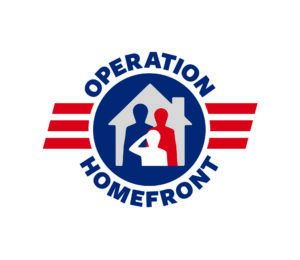Being a veteran caregiver is a way to help people I love, who love our country.
At what moment did you realize you were a military caregiver?
I wasn’t even married to my husband yet when he was processing out of the military. Once he was finally officially out of the military, I noticed that he was not going to his appointments or taking his medication as he should be. He was trying so hard to revert to civilian life by doing everything opposite of the military life he was used to. We went to an event and my husband was telling another veteran that he didn’t know if he would be where he is at right now if it wasn’t for me. Of course, I was just a girlfriend at the time, but another veteran wife said, “You’re his caregiver. You go out of your way to help him when you didn’t sign up for this life.”
How has your life changed since you became a caregiver? What sacrifices have you had to make?
My life has changed drastically, my friendships with people have come and gone because they don’t understand that I’m not just a mom and caring for my child, but I’m also caring for my husband who needs me to function and support him. I’ve sacrificed certain job opportunities, moves, and friendships.
What is a quote that inspires you or keeps you motivated?
“When life puts you in tough situations don’t say, ‘Why me?’ Say, ‘Try me!’”

My Story
Jennifer Reed met her husband Ryan as he was transitioning out of the U.S. Navy. She couldn’t have known at the time that eventually, she would be balancing duties as a mother to her daughter Olivia who has ADHD, a distance caregiver to her veteran mother, and a full-time caregiver to her husband.
Ryan served as an aviation structural mechanic for three years. From related incidents, Ryan was diagnosed with depression, post traumatic stress disorder (PTSD), anxiety, and insomnia. Coming from a military family background, Jennifer was already acquainted with military-related invisible injuries. Jennifer helps Ryan by ordering refills on medication, making appointments, sometimes driving him to appointments, and supporting him when he has manic episodes related to his PTSD. She also does the shopping and makes sure Olivia gets to her before- and after-school activities.
Jennifer works from home and is taking classes in administration. She has had to learn how to be flexible and manage her own expectations, especially as she juggles competing priorities when there are only so many hours in a day.
Jennifer is proud of the progress she has made in finding a balance between work, life, and family, though that progress didn’t come easily. There were many times that Jennifer was told she was not a real caregiver and her husband needed to make his appointments himself; however, Jennifer knew her husband wasn’t capable, especially considering the frustrating experiences she has had managing his care. As a fellow, Jennifer hopes to empower other caregivers to stand-up as advocates for their veteran’s care, no matter what their injuries are.









